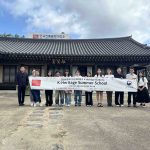Busan, a city known for its energetic commerce and bustling local businesses, is undergoing a significant transformation. The Covid-19 pandemic has accelerated a shift towards online shopping, leading to the closure of numerous major retail outlets and a dramatic decline in self-employment. Recent statistics underscore a deepening ‘self-employment crisis,’ rooted in stagnant household wage income and the burdensome repayment of household debt, which has resulted in prolonged sluggishness in domestic demand.
The numbers tell a sobering story. According to the National Tax Service, nearly one million business entities, including individuals and corporations, filed for closure last year, marking a sharp increase from the previous year. Nearly half of these closures were attributed to ‘business sluggishness,’ making it one of the highest figures since 2007. This trend is especially pronounced in sectors like retail, services, and food and beverage, which are predominantly comprised of self-employed individuals.
Despite the clear signs of economic distress, government policies have largely focused on suppressing wage growth while neglecting the rising debt burden faced by households. There has been a lack of substantial efforts to increase government spending to stimulate consumption and investment, leaving many small businesses and self-employed individuals without a clear path forward. This is reflected in the second quarter of this year alone, where the number of self-employed individuals dropped by an average of 111,000 per month compared to the same period last year, a significant acceleration from the previous quarter.
The Rise of Online Shopping
The Covid-19 pandemic has not only changed how people interact but also how they shop. As physical stores faced restrictions and health concerns grew, online shopping became a crucial lifeline for both consumers and businesses in Busan. This shift is expected to have long-term impacts on consumer behavior and the retail landscape.
During the pandemic, the need to avoid crowded places led many consumers to turn to online shopping, some for the first time. This shift in behavior is now ingrained, with many appreciating the convenience and safety of shopping from home. Companies like Coupang and Baemin played pivotal roles in this transformation. Coupang, often dubbed the “Amazon of South Korea,” saw its user base and sales surge, thanks to its efficient delivery network and extensive product range. Similarly, Baemin, a leading food delivery service, experienced substantial growth as more people opted for online food delivery amid restaurant closures and capacity restrictions.
Businesses responded swiftly to these changes. They enhanced their e-commerce platforms, introduced curbside pickup options, and expanded delivery services. Technologies like artificial intelligence and data analytics were adopted to personalize customer experiences, manage inventory more efficiently, and streamline logistics operations. These innovations have not only helped businesses survive the pandemic but also positioned them for future growth.
The rise of online shopping represents a significant and lasting transformation in consumer habits. This trend is reshaping the retail landscape in Busan, compelling businesses to continuously innovate and improve their digital offerings to remain competitive.
Major Retail Closures in Busan
The pandemic has exacerbated existing challenges for traditional retail, leading to the closure of several major outlets in Busan. These closures reflect a broader shift in consumer behavior and economic pressures.
In recent years, significant retail stores such as Homeplus Seomyeon, NC Department Store Seomyeon, and Megamart Namcheon have shut down. The primary reasons include declining foot traffic, rising operational costs, and fierce competition from online retailers. The pandemic further reduced in-store shopping, making it difficult for these large retailers to remain viable.
For example, Homeplus Seomyeon, once a bustling retail hub, saw a dramatic drop in sales, ultimately leading to its closure. Similar financial pressures forced NC Department Store Seomyeon and Megamart Namcheon to shut their doors. The loss of these stores has had a ripple effect on the local economy, increasing commercial vacancies and reducing neighborhood vibrancy.
The closure of these large retail outlets has left substantial commercial spaces vacant. Rather than letting these areas fall into disuse, developers are repurposing them into high-rise residential and mixed-use complexes. This approach addresses the demand for urban housing and revitalizes areas that might otherwise decline economically.
Transformation of Retail Spaces
As major retail outlets close, Busan is witnessing a significant transformation of these vacant spaces. This shift reflects broader urban redevelopment trends aimed at adapting to changing consumer behaviors and economic conditions.
Vacant retail spaces are being redeveloped into high-rise residential and mixed-use complexes. For instance, the site of the former NC Department Store Seomyeon is being transformed into a modern living environment that integrates shopping, dining, and residential spaces. Similarly, the former Megamart Namcheon site is being repurposed into a vibrant community space with recreational facilities, green spaces, and retail outlets.
This transformation is driven by the recognition that traditional retail formats are no longer as viable in the face of increasing online shopping. As consumer habits shift, the demand for large physical retail spaces diminishes. Moreover, there is a significant demand for residential housing in urban areas like Busan. Redeveloping these vacant spaces helps meet this demand while supporting the city’s growth.
These mixed-use developments promote sustainable urban planning by reducing the need for long commutes, promoting walkability, and creating cohesive communities. This approach aligns with global trends towards more livable and sustainable urban environments.
Decline of Self-Employed Businesses
The pandemic has significantly impacted self-employed businesses in Busan, accelerating a decline that has outpaced national trends. Several factors contribute to this decline, resulting in economic implications and challenges for self-employed individuals.
Recent data from the Busan Research Institute reveals a sharp decrease in the number of self-employed individuals in the city. In the first quarter of 2024, the number fell to 317,000, an 11.3% decrease from the previous year. This decline is notably higher than the national average, with other cities like Ulsan and Daegu seeing increases in self-employment.
Several factors contribute to this decline. High interest rates and inflation have increased the cost of doing business, making it difficult for small business owners to maintain profitability. Decreased consumer spending has further strained small businesses. Additionally, the demographic shift, particularly the decline in the youth population, has reduced the customer base for local businesses. Many young people have moved to other regions in search of better job opportunities, compounding the problem.
The decline of self-employed businesses has had a visible impact on Busan’s urban landscape. Many commercial districts now feature numerous empty storefronts, with areas near Busan National University experiencing particularly high vacancy rates. This increase in vacancies signifies lost business opportunities and contributes to a decline in neighborhood vitality, creating a cycle of economic stagnation.
Government Response and Support Measures
The Korean government has made efforts to support small businesses and the self-employed in Busan throughout the pandemic. However, despite these initiatives, many businesses continue to struggle under the weight of economic pressures.
The “Yellow Umbrella” fund is one primary support mechanism, offering financial security for small business owners forced to close their businesses. Additionally, various financial aid packages have been introduced, including grants, low-interest loans, and tax deferrals. These measures aim to help businesses manage their cash flow during periods of reduced income. However, the support often falls short of covering the extensive losses incurred over prolonged periods.
The criteria for accessing aid can be stringent, excluding many small business owners. Moreover, the bureaucracy involved in applying for aid can be cumbersome, delaying the disbursement of funds. The scale of financial support often does not match the needs of businesses, especially in hard-hit sectors like retail and hospitality.
To address these challenges, the government needs to increase the scale of financial support, simplify access to aid, and provide targeted support for high-risk sectors. Encouraging small businesses to adopt digital tools and e-commerce platforms through subsidies and training programs can also help them adapt to changing market dynamics.
Future Prospects and Recommendations
Looking ahead, the future of Busan’s retail industry and self-employment sector will depend on several factors. Long-term economic trends indicate a sustained increase in online shopping, necessitating businesses to maintain and enhance their digital presence. The transformation of vacant retail spaces into residential and mixed-use complexes will likely continue, promoting multifunctional urban spaces that drive economic activity.
Businesses must adapt by investing in digital tools and creating seamless omnichannel experiences. Encouraging the adoption of digital technologies and e-commerce platforms can enhance competitiveness and resilience.
To support the recovery and growth of self-employed businesses, comprehensive policy measures are needed. The government should increase financial aid, simplify the application process, and provide targeted support for high-risk sectors. Long-term strategies should focus on fostering an entrepreneurial ecosystem through education and training programs.
Enhancing urban planning by creating green spaces, pedestrian-friendly areas, and community engagement facilities can improve the quality of urban life and attract residents. Policies aimed at attracting and retaining young talent, such as affordable housing and career opportunities, are essential for the city’s long-term economic vitality.
Busan’s future will be shaped by its ability to adapt to new consumer behaviors, leverage digital innovations, and foster a supportive environment for businesses. By implementing strategic recommendations, Busan can navigate the challenges posed by the pandemic and emerge as a resilient and thriving city.
From Brick-and-Mortar to Digital
Busan is at a crossroads, navigating through significant transformations in its retail industry and self-employment sector brought about by the Covid-19 pandemic. The accelerated shift towards online shopping, the closure of major retail outlets, and the decline of self-employed businesses paint a complex picture of economic change and adaptation.
The rise of online shopping has fundamentally altered consumer behavior, pushing businesses to innovate and invest in digital platforms. Companies like Coupang and Baemin have led the way, showcasing the potential of e-commerce to meet evolving consumer needs. However, this shift has also contributed to the decline of traditional retail, with significant outlets like Homeplus Seomyeon and NC Department Store Seomyeon closing their doors. These closures have left substantial commercial spaces vacant, prompting a wave of urban redevelopment. The transformation of these spaces into high-rise residential and mixed-use complexes reflects broader trends in urban planning, aiming to create sustainable and vibrant communities.
The decline in self-employment, particularly in the retail, services, and food sectors, underscores the challenges faced by small business owners in Busan. High operational costs, decreased consumer spending, and demographic shifts have exacerbated the crisis. Despite government efforts to provide financial support through programs like the “Yellow Umbrella” fund, many businesses continue to struggle. The need for more robust and targeted support measures is evident.
Looking forward, Busan’s future hinges on its ability to adapt to these changes. Businesses must embrace digital transformation, creating seamless omnichannel experiences to remain competitive. Long-term strategies to support self-employed individuals and small businesses are crucial. This includes increasing financial aid, simplifying access to government support, and fostering an entrepreneurial ecosystem through education and training programs.
Enhancing urban planning by developing multifunctional spaces that promote sustainability and community engagement will also play a key role. Policies aimed at attracting and retaining young talent, such as affordable housing and career opportunities, are essential for the city’s economic vitality.
Busan’s ability to navigate these challenges and implement strategic recommendations will determine its resilience and growth. By embracing change and fostering a supportive environment for businesses, Busan can emerge stronger, with a dynamic and thriving economy that meets the needs of its residents and businesses alike.



